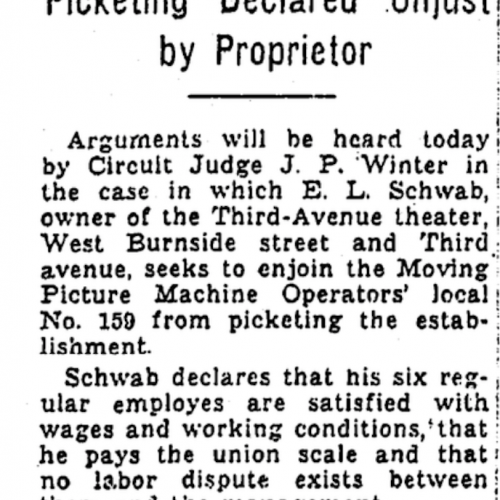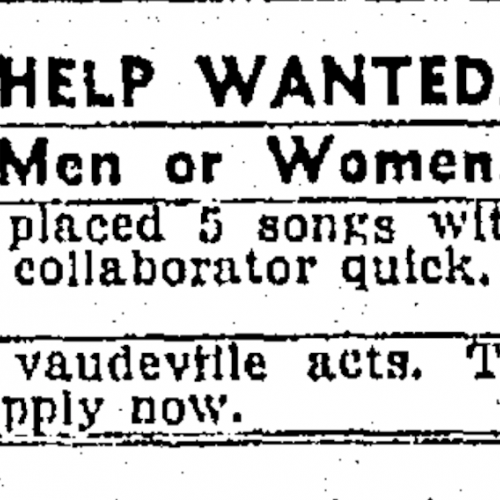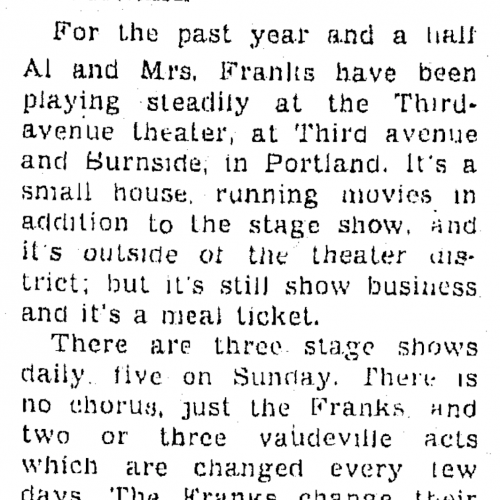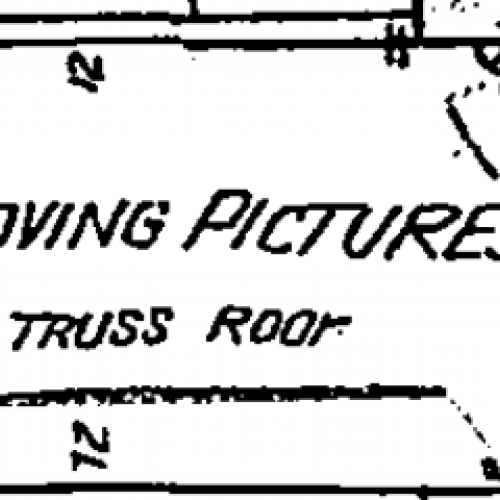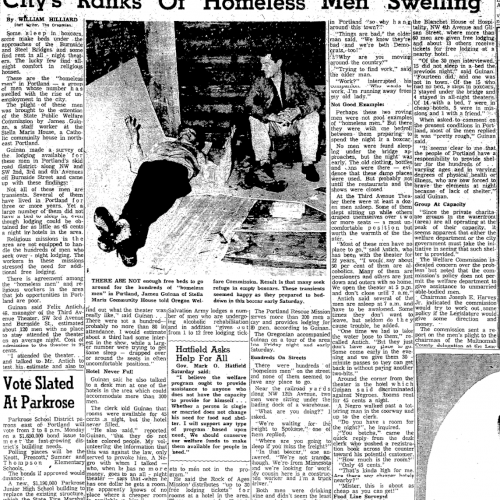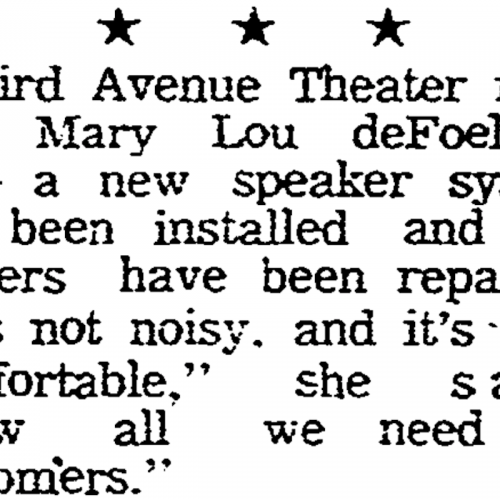The Third Avenue Theater was constructed in 1890 and was located in Old Town Chinatown in Portland, Oregon. Located on the corner of Southwest 3rd Avenue and Burnside St., The Third Avenue Theater was a Burlesque House and presented Vaudeville acts.1 On the Fourth of July in 1934, The Third Avenue Theater ran a small classified ad in the The Oregonian in the Help Wanted section asking for “Amateur Vaudeville Acts.”2 The reason being may be due to the lack of income or profit to hire potential professional Vaudeville acts or possibly for the amateur appeal. Regardless, a few years later in March, 1938, The Oregonian ran another article titled “Long Run In Portland.”3 The article briefly mentions Al and Mrs. Franks, a couple who had been performing in the theater which is “located outside of the theater district.” The article then goes on to describe their tenure at the Third Avenue Theater as a “meal ticket,” which could allude to the possibility that performing at the Third Avenue Theater was not a spectacular money endeavor. Not even a few months later, E. L. Schwab would present his case to “enjoin the Moving Picture Machine Operators local No. 159 from picketing” the Third Avenue Theater for labor controversies.4 Some thirty years down the road, the theater was even a place where the homeless would attend the theater to get some sleep because the cost was very low. The manager at them time, Felix Antich, said that they “open the theater at 5 p.m. and don’t close until 7 a.m.” which makes it a viable option for a place to sleep. Antich mentions in the article that seldom do the men cause any trouble, but often have to be awoken at the 7 a.m close time.5 The theater changed management throughout the years, and one of the latest sources mentioning management appears in 1962. Mary Lou deFoeldvar mentions in a short snippet, in The Oregonian, that the new speaker system has been installed and the heaters have been repaired, and adding “Now all we need are customers.”6 This points to the possible probability that due to the unideal location, the change in management could be due fluctuations in income. In similar fashion, the theater would eventually switch tiles and become known as The Paris Theatre. The Paris Theatre closed down in October 2019 due to structural damage.
